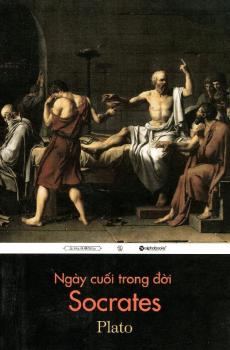The Approach to Philosophy
The Approach to Philosophy
Đăng nhập để đọc sách và tải về file pdf miễn phí
| Nhà xuất bản | Chưa rõ |
|---|---|
| Nhà xuất bản sách tiếp cận | Public domain |
| Năm xuất bản | 2008 |
| Coppy right | Chưa rõ |
In an essay on "The Problem of Philosophy at the Present Time," Professor Edward Caird says that "philosophy is not a first venture into a new field of thought, but the rethinking of a secular and religious consciousness which has been developed, in the main, independently of philosophy."If there be any inspiration and originality in this book, they are due to my great desire that philosophy should appear in its vital relations to more familiar experiences. If philosophy is, as is commonly assumed, appropriate to a phase in the development of every individual, it should grow out of interests to which he is already alive. And if the great philosophers are indeed never dead, this fact should manifest itself in their classic or historical representation of a perennial outlook upon the world. I am not seeking to attach to philosophy a fictitious liveliness, wherewith to insinuate it into the good graces of the student. I hope rather to be true to the meaning of philosophy. For there is that in its stand-point and its problem which makes it universally significant entirely apart from dialectic and erudition. These are derived interests, indispensable to the scholar, but quite separable from that modicum of philosophy which helps to make the man. The present book is written for the sake of elucidating the inevitable philosophy. It seeks to make the reader more solicitously aware of the philosophy that is in him, or to provoke him to philosophy in his own interests. To this end I have sacrificed all else to the task of mediating between the tradition and technicalities of the academic discipline and the more common terms of life.
The purpose of the book will in part account for those shortcomings that immediately reveal themselves to the eye of the scholar. In Part I various great human interests have been selected as points of departure. I have sought to introduce the general stand-point and problem of philosophy through its implication in practical life, poetry, religion, and science. But in so doing it has been necessary for me to deal shortly with topics of great independent importance, and so risk the disfavor of those better skilled in these several matters. This is evidently true of the chapter which deals with natural science. But the problem which I there faced differed radically from those of the foregoing chapters, and the method of treatment is correspondingly different. In the case of natural science one has to deal with a body of knowledge which is frequently regarded as the only knowledge. To write a chapter about science from a philosophical stand-point is, in the present state of opinion, to undertake a polemic against exclusive naturalism, an attitude which is itself philosophical, and as such is well known in the history of philosophy as positivism or agnosticism. I have avoided the polemical spirit and method so far as possible, but have, nevertheless, here taken sides against a definite philosophical position. This chapter, together with the Conclusion, is therefore an exception to the purely introductory and expository representation which I have, on the whole, sought to give. The relatively great space accorded to the discussion of religion is, in my own belief, fair to the general interest in this topic, and to the intrinsic significance of its relation to philosophy.
I have in Part II undertaken to furnish the reader with a map of the country to which he has been led. To this end I have attempted a brief survey of the entire programme of philosophy. An accurate and full account of philosophical terms can be found in such books as Külpe's "Introduction to Philosophy" and Baldwin's "Dictionary of Philosophy," and an attempt to emulate their thoroughness would be superfluous, even if it were conformable to the general spirit of this book. The scope of Part II is due in part to a desire for brevity, but chiefly to the hope of furnishing an epitome that shall follow the course of the natural and historical differentiation of the general philosophical problem.
Finally, I have in Part III sought to present the tradition of philosophy in the form of general types. My purpose in undertaking so difficult a task is to acquaint the reader with philosophy in the concrete; to show how certain underlying principles may determine the whole circle of philosophical ideas, and give them unity and distinctive flavor. Part II offers a general classification of philosophical problems and conceptions independently of any special point of view. But I have in Part III sought to emphasize the point of view, or the internal consistency that makes a system of philosophy out of certain answers to the special problems of philosophy. In such a division into types, lines are of necessity drawn too sharply. There will be many historical philosophies that refuse to fit, and many possibilities unprovided for. I must leave it to the individual reader to overcome this abstractness through his own reflection upon the intermediate and variant stand-points.
Although the order is on the whole that of progressive complexity, I have sought to treat each chapter with independence enough to make it possible for it to be read separately; and I have provided a carefully selected bibliography in the hope that this book may serve as a stimulus and guide to the reading of other books.
The earlier chapters have already appeared as articles: Chapter I in the International Journal of Ethics, Vol. XIII, No. 4; Chapter II in the Philosophical Review, Vol. XI, No. 6; Chapter III in the Monist, Vol. XIV, No. 5; Chapter IV in the International Journal of Ethics, Vol. XV, No. 1; and some paragraphs of Chapter V in the Journal of Philosophy, Psychology, and Scientific Methods, Vol. I, No. 7. I am indebted to the editors of these periodicals for permission to reprint with minor changes.
In the writing of this, my first book, I have been often reminded that a higher critic, skilled in the study of internal evidence, could probably trace all of its ideas to suggestions that have come to me from my teachers and colleagues of the Department of Philosophy in Harvard University. I have unscrupulously forgotten what of their definite ideas I have adapted to my own use, but not that I received from them the major portion of my original philosophical capital. I am especially indebted to Professor William James for the inspiration and resources which I have received from his instruction and personal friendship.
Ralph Barton Perry.
Cambridge, March, 1905.




